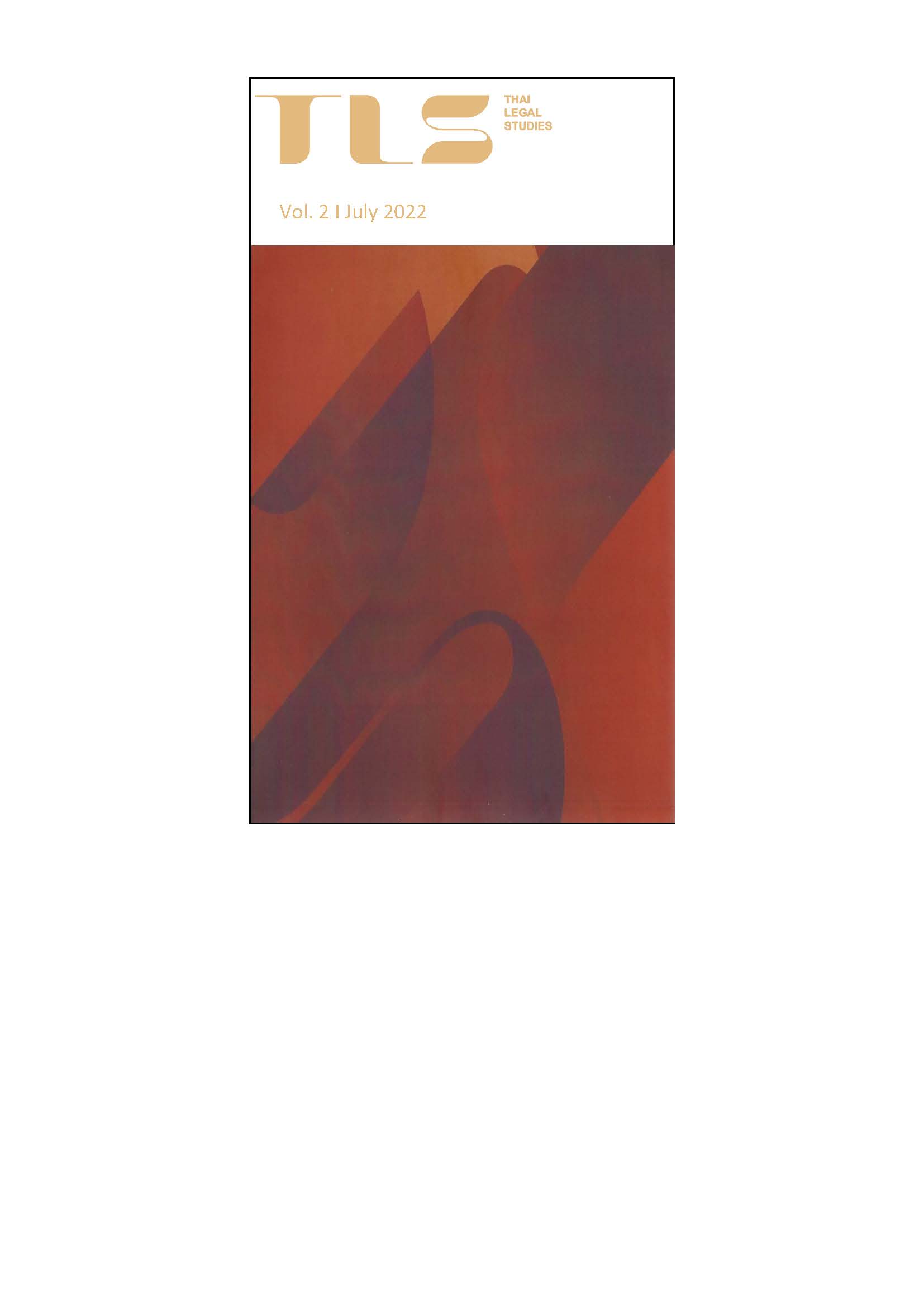The Future of Work and Labor Dispute Settlement
DOI:
https://doi.org/10.54157/tls.257801Keywords:
Dispute settlement, Future of work, Labor arbitration, Employment arbitrationAbstract
The Covid-19 pandemic has transformed workplace models from a purely on-site model where all executives and employees work in one or several principal offices, to diverse new models: hybrid or fully remote workplaces. These new workplace models, known as “the future of work,” enable employers to access talent remotely and without geographical limitations, leading to more productivity and lower overall cost. However, these hybrid or fully remote working models could create legal complications concerning labor disputes, which the available traditional approaches may not be successful in resolving. This article aims to discuss two main issues: firstly, it will examine the current available approaches to resolving labor disputes, particularly the mechanisms specified in Thailand’s Labor Relations Act, while highlighting more compromising, efficient approaches to labor disputes—especially in relation to the new working models. Secondly, it will tackle the possibility of implementing employment arbitration under Thai law, analyzing the pros and cons of this approach and its suitability when applied to the new working models.
References
Alexander, Andrea, Aaron De Smet, and Mihir Mysore. “Pandemic-Style Working from Home May Not Translate Easily to a ‘Next Normal’ Mix of On-Site and Remote Working.” McKinsey Quarterly (2020).
Alexander, Andrea, Aaron De Smet, and Mihir Mysore. “Reimagining the Post-Pandemic Workforce.” McKinsey Quarterly (2020).
“The Arbitration Rules.” The Thai Arbitration Institute Office of the Judiciary (2019). https://tai.coj.go.th/en/file/get/file/20190328eef186a18fce8194617ad031e441b36a153326.pdf
“Collective Bargaining and Labor Relations.” International Labor Organization. i
Cotton, Jonathan, and Caroline Edwards. Slaughter and May. “Just How Final is ‘Final and Binding’?” Thomson Reuters Practical Law (2022). https://uk.practicallaw.thomsonreuters.com/9-321-3952?transitionType=Default&contextData=(sc.Default)&firstPage=true
“Examination of Grievances Recommendation, 1967 (No. 130).” International Labor Organization. https://www.ilo.org/dyn/normlex/en/f?p=NORMLEXPUB:12100:0::NO::P12100_ILO_CODE:R130
Fagbemi, Sunday A. “The Doctrine of Party Autonomy in International Commercial Arbitration: Myth or Reality?” (2015) 6 Journal of Sustainable Development Law and Policy 202–46. https://doi.org/10.4314/jsdlp.v6i1.10
Gilbride, Karla. “‘Forced’ Is Never Fair.” Economic Policy Institute (30 May 2019). https://www.epi.org/blog/forced-is-never-fair-what-labor-arbitration-teaches-us-about-arbitration-done-right-and-wrong/
Hamnett, Emma. “The Metaverse: Real Employment Issues in a Virtual World of Work.” Clarke Willmott (28 February 2022). https://www.clarkewillmott.com/news/the-metaverse-real-employment-issues-in-a-virtual-world-of-work/
Kasemsan Wilawan. Labor Law (28th edn, Winyuchon 2020).
Lund, Susan, Anu Madgavkar, James Manyika, Kweilin Elingrud, Mary Meaney, and Olivia Robinson. “The Post-Pandemic Economy: The Future of Work After Covid-19.” McKinsey Global Institute (2021).
Panthip Pruksacholavit. “Resolution of Bargaining Impasses in the Public Sector.” (2009) 3 Thammasat Law Journal 216.
Practical Law Litigation and Practical Law Arbitration. “Arbitration vs. Litigation in the US.” Thomson Reuters Practical Law (2021). https://uk.practicallaw.thomsonreuters.com/w-006-5897?transitionType=Default&contextData=(sc.Default)&firstPage=true
Robinson, Maria Moraes. “The Metaverse Will Shape the Future of Work. Here’s How.” Workplace Insight (9 February 2022). https://workplaceinsight.net/the-metaverse-will-shape-the-future-of-work-heres-how/
Sava, Justina Alexandra. “Future Trends In Remote Work Worldwide from 2020 to 2021.” Statista (7 April 2022). https://www.statista.com/statistics/1199110/remote-work-trends-covid-survey-september-december/
Schmitthoff, Clive M. “Finality of Arbitral Awards and Judicial Review.” In Julian D. M. Lew (ed) Contemporary Problems in International Arbitration (Springer 1987). https://doi.org/10.1007/978-94-017-1156-2
Stefano, Valerio De, Antonio Aloisi, and Nicola Countouris. “The Metaverse Is a Labour Issue.” Social Europe (1 February 2022). https://socialeurope.eu/the-metaverse-is-a-labour-issue?fbclid=IwAR340_iujh55XRU2LVRzQFBip4dig5NriUIgG1_d8EdHm4mbQbaalqTYXnk
“Voluntary Conciliation and Arbitration Recommendation, 1951 (No. 92).” International Labor Organization. https://www.ilo.org/dyn/normlex/en/f?p=NORMLEXPUB:12100:0::NO::P12100_ILO_CODE:R092
Sources in Thai
สำนักงานสถิติแห่งชาติ. “ผลสำรวจชี้ประชาชน WFH ได้ทุกวันแค่ 19.4% แนะลดค่าใช้จ่ายสาธารณูปโภคหนุนทำงานที่บ้าน.” Hfocus (2020). [National Statistical Office. “Survey shows 19.4% of the population can work from home everyday, reduce utility bills suggested to promote WFH.” Hfocus (2020). https://www.hfocus.org/content/2020/04/19044
Published
Issue
Section
License
Copyright (c) 2022 Benjawan Tangsatapornpan

This work is licensed under a Creative Commons Attribution 4.0 International License.
Authors retain copyright and publishing rights without restrictions, but grant Thai Legal Studies the right of first publication in English and to distribute the work under a Creative Commons Attribution 4.0 International Public License (“CC BY 4.0”). It allows others to freely share the work, including the making of translations. There is no charge or fee for readers to immediately view published articles or content, and users are allowed to read, download, copy, distribute, print, search, link to the full texts of the articles, or use them for any other lawful purpose, without asking prior permission from Thai Legal Studies or the author(s), the only requirement being that an acknowledgement is given of the work’s authorship and its initial publication in English by Thai Legal Studies.







